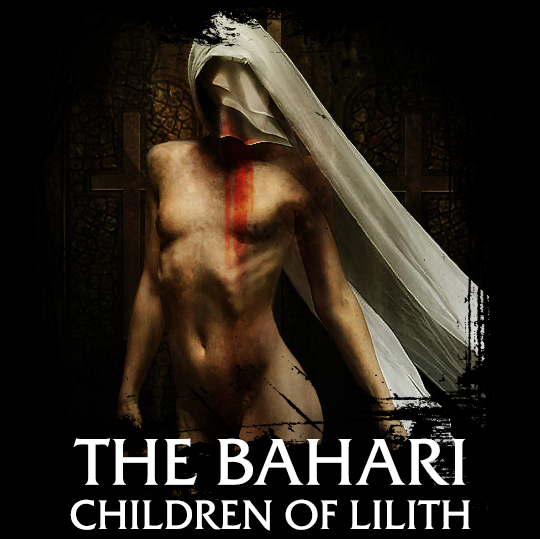Difference between revisions of "The Bahari"
(Created page with "center<br>") |
|||
| Line 1: | Line 1: | ||
| − | [[File:TheBahari.jpg|center]]<br> | + | [[File:TheBahari.jpg|center]] |
| + | <center> | ||
| + | <font size=5>[[Bahari Lore]] | [[Bahari Convictions]] | [[Bahari Rituals]] </font size><br> | ||
| + | |||
| + | <font size=3><font color=#eee9ec> | ||
| + | |||
| + | The Bahari believe that Lilith, the Dark Mother, would have been the greatest gardener of Eden, if not for Adam and the human God. She had three Gardens; Elona, the Garden of Hope, D’hainu, the Garden of Renewal, and Bahara, the Garden of Suffering. Whether the Gardens were each a physical place or a metaphor is of some debate, but their names and the events surrounding them are without question part of Bahari belief and what one could call their liturgy.<br> | ||
| + | |||
| + | In one of the few ways the Bahari have always been united, they are intent on forming new gardens of paradise (or their interpretation of what paradise is) around the globe. Historically, the Bahari named the city of Jericho their new Garden of Renewal, where between the 9th and 14th centuries CE, Kindred could find sanctuary, succor, and time to pacify their Beasts. The Inquisition of the time routed the domain, but for a time it was one of the Bahari’s strongholds. Likewise, a powerful Bahari cell declared Oslo their Garden of Suffering in the 19th and early 20th centuries CE, but that group disappeared almost overnight prior to the start of the Second World War, leaving other Kindred to discover the domain had been used for the imprisonment, torture, and diablerie of countless vampires for over a century. None of the Oslo cell have re-entered society under the same names since that time.<br> | ||
| + | |||
| + | The superiority of Lilith to Caine is a vital part of their belief structure, and the hate of Cainites is not something open to interpretation, let alone something to be approached with passivity or without violence. Cainites, down to the very last one, will either become Lhaka in the Garden, or die. The religious opinion that all supernatural creatures in the world are the children of Lilith is widespread, but not required. In the end, beneath any poetry, sin within the Bahari comprises a spectrum.<br> | ||
Revision as of 18:18, 9 March 2020
Bahari Lore | Bahari Convictions | Bahari Rituals
The Bahari believe that Lilith, the Dark Mother, would have been the greatest gardener of Eden, if not for Adam and the human God. She had three Gardens; Elona, the Garden of Hope, D’hainu, the Garden of Renewal, and Bahara, the Garden of Suffering. Whether the Gardens were each a physical place or a metaphor is of some debate, but their names and the events surrounding them are without question part of Bahari belief and what one could call their liturgy.
In one of the few ways the Bahari have always been united, they are intent on forming new gardens of paradise (or their interpretation of what paradise is) around the globe. Historically, the Bahari named the city of Jericho their new Garden of Renewal, where between the 9th and 14th centuries CE, Kindred could find sanctuary, succor, and time to pacify their Beasts. The Inquisition of the time routed the domain, but for a time it was one of the Bahari’s strongholds. Likewise, a powerful Bahari cell declared Oslo their Garden of Suffering in the 19th and early 20th centuries CE, but that group disappeared almost overnight prior to the start of the Second World War, leaving other Kindred to discover the domain had been used for the imprisonment, torture, and diablerie of countless vampires for over a century. None of the Oslo cell have re-entered society under the same names since that time.
The superiority of Lilith to Caine is a vital part of their belief structure, and the hate of Cainites is not something open to interpretation, let alone something to be approached with passivity or without violence. Cainites, down to the very last one, will either become Lhaka in the Garden, or die. The religious opinion that all supernatural creatures in the world are the children of Lilith is widespread, but not required. In the end, beneath any poetry, sin within the Bahari comprises a spectrum.
